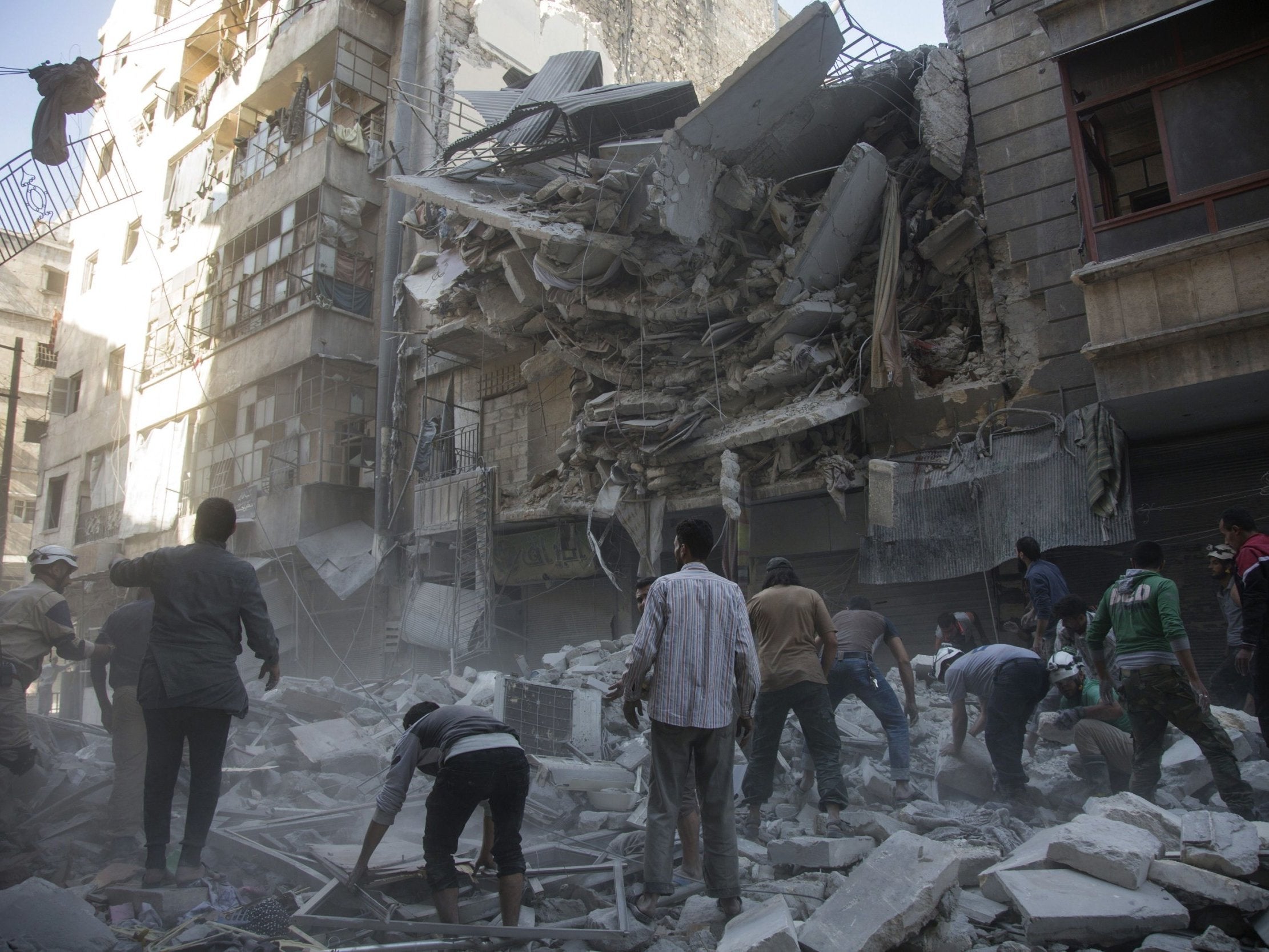MPs condemn government inaction in Syria, saying price for failure to intervene 'unacceptably high'
Working group calls on ministers to urgently design an atrocity prevention strategy plan

The government should act urgently to prevent future crimes against humanity, say MPs who believe the “price of inaction” in Syria has been “unacceptably high”.
The Commons Foreign Affairs Committee called for the government to produce an atrocity prevention strategy plan, after it concluded there had been a “manifest failure to protect civilians and to prevent mass atrocity crimes in Syria”.
And an independent inquiry should examine the UK’s failure to intervene militarily in the conflict, the MPs argued.
The lack of an early response against Bashar al-Assad’s regime had resulted in severe consequences and opened the door for Russia and Iran to intervene, they said.
The committee accepted that the government had made a “significant contribution” to humanitarian efforts but condemned the failure to use military force that had contributed to a crisis “with repercussions in Europe and the UK”.
“It has become clear through our inquiry that the price of inaction in the case of Syria has been unacceptably high,” the MPs’ report said.
“Starting as a peaceful protest in March 2011, the Syrian conflict has subsequently claimed an estimated 400,000 lives and led to 11 million people, half the Syrian population, being forced to leave their homes.”
The report proposed an independent inquiry into the decision-making processes that led to UK non-intervention and what lessons can be learnt from the human cost.
Other recommendations include:
- Implementing France’s proposal to refrain from use of the veto at the UN Security Council when there is credible evidence of genocide, and encouraging others to do so
- Updating the strategy for protection of civilians in war to reflect how explosive weapons and attacks on healthcare services affect civilians and what can be done
- Clarifying and defining the conditions under which a humanitarian intervention may take place
The MPs said that investigations such as the Iraq Inquiry had examined the “cost, complexities and challenges of intervening” but “the consequences of not acting are less well understood”.
It is crucial that the UK leads by example
Britain joined France and the US in April this year in carrying out air strikes on targets belonging to Mr Assad’s regime following a chemical weapons attack, but calls to establish no-fly zones and action to protect civilians had been made as early as 2011 and 2012.
In August 2013, following a chemical weapons attack, David Cameron’s government was defeated in the Commons over intervention in Syria.
Committee chairman Tom Tugendhat said: “The consequences of inaction can be devastating.
“The people of Syria show clearly that choosing not to act, standing aside, can have consequences every bit as real and horrific as the decision to act.”

With the situation in Idlib reaching crisis point, action to prevent mass atrocities was ever more urgent, he said.
It was a contested concept in international law but the committee concluded that “proportionate and necessary force should be available to be used as a last resort to alleviate extreme humanitarian distress on a large scale”.
The MPs said a draft text of an atrocity prevention strategy plan should be available by April.
Campaigners welcomed the report. The UK Civil Society Mass Atrocity Prevention group, coordinated by human rights organisation Protection Approaches, said it had repeatedly called for such a cross-government strategy.
Dr Kate Ferguson, of UK-based Protection Approaches, said: “At a time of rising global violence and instability, when atrocity crimes are becoming more common, it is crucial that the UK leads by example in strengthening its national approach to more timely and effective prediction and prevention of these terrible crimes, and in a manner that supports rather than undermines our multilateral system.
“A national cross-government strategy would do just this.”
Protection Approaches said waiting until mass atrocities were already occurring to take action was too late to adequately protect civilians.
The charity said: “In Myanmar the world has seen the devastation that occurs when a crisis that was predicted is met with inadequate action or political will to act from the international community. Had the UK had in place a clearer cross-government strategy on the prediction of identity-based violence and its prevention, perhaps its response to warning signs would have been different.”
Foreign secretary Jeremy Hunt, in a reply to Mr Tugendhat, took issue with the notion of “UK inaction”.
The UK had tried to remain engaged in Syria, he said, and was the second-largest bilateral donor, giving £2.71bn in aid and providing food, water and healthcare in Britain’s largest ever response to a single humanitarian crisis. Much of the money was spent on mediating the refugee crisis, Mr Hunt said.
“We have also sought to defend the global norms and values so tested in the Syrian conflict,” he added, such as supporting the UN Commission of Inquiry into human rights abuses.
“The UK has been particularly active on the issue of chemical weapons,” Mr Hunt wrote, which included taking military action against Isis in north-eastern Syria. “We need also always to be conscious that military action creates its own consequences,” he said.
Additional reporting by PA
Join our commenting forum
Join thought-provoking conversations, follow other Independent readers and see their replies
Comments
Bookmark popover
Removed from bookmarks